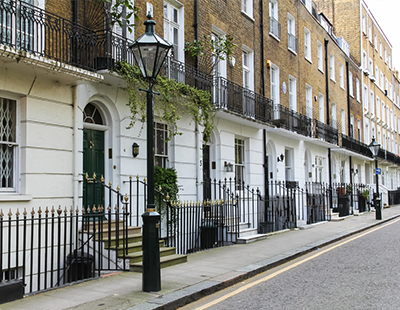/ParliamentView-400x310.jpg)
The outcome of the Ukraine crisis is far from certain, but one thing has become abundantly clear. The long-overdue Economic Crime Bill is vital if the threat to global stability being posed by the Kremlin is to be tackled effectively.
The Prime Minister, Boris Johnson, has now pledged that the Economic Crime Bill will be introduced in parliament before Easter.
Legislation is certainly needed to stem the tide of Russian dirty money that has been flowing into the UK, often being laundered through property deals involving anonymous entities.
As the Conservative MP Bob Seely, a member of the Foreign Affairs Select Committee, has rightly observed, there is a need for “a long-term and coherent plan and a strategy to deal with a dangerous world”.
It is arguable that we would not presently be living in such a dangerous world if the Economic Crime Bill had been brought in after it was first outlined by the government in the 2019 Queen’s Speech.
However, the legislation did not materialise, and the issues highlighted in the 2018 Foreign Affairs Select Committee report ‘Moscow’s Gold: Russian Corruption in the UK’ continued unchecked.
US State Department officials have voiced concerns that this could undermine sanctions introduced in response to Russian aggression against the Ukraine. One diplomatic source told The Times: “Putin doesn’t hold his money abroad, it is all in the kleptocrats’ names and a hell of a lot of it is sitting in houses in Knightsbridge and Belgravia.”
Yet even though there is now the political will to bring in the Economic Crime Bill, this will take time and in the meantime establishing a UK database of beneficial ownership is proving to be complex.
The Foreign Secretary Liz Truss has said that new legislation laid in parliament on 10 February meant the UK could sanction entities and businesses of economic and strategic significance to the Russian government, as well as their owners, directors and trustees. Unfortunately, according to NGO Transparency International, more than 85,000 properties in the UK are owned anonymously by entities registered abroad.
There is an old saying that you are judged by the company you keep. This judgment surely includes the companies with which your firm does business, so those residential and commercial property agencies which value their reputations should be taking action now instead of waiting for the Economic Crime Bill or a UK database of beneficial ownership.
They should be ensuring that their anti-money laundering (AML) procedures are fully compliant, and where necessary updating their customer due diligence (CDD) records and carrying out sanctions-related screening.
This is a simple process for any business using electronic verification – at SmartSearch our verification platform can conduct these checks in seconds – and it is a matter of concern that the government has not yet made it a requirement that old-fashioned paper methods of carrying out Know Your Customer (KYC) checks are replaced by mandatory use of electronic verification in all regulated sectors.
It is to be hoped this will be addressed when the Economic Crime Bill is finally introduced. In the meantime, the property sector should be taking the opportunity to put its own affairs in order now, by taking a proactive approach to addressing the very real risks of fraud and money laundering.
*Martin Cheek is managing director of SmartSearch, the leading online provider of anti-money laundering services




/ParliamentView-400x310.jpg)


/ParliamentView-400x310.jpg)





.png)


.png)



Join the conversation
Be the first to comment (please use the comment box below)
Please login to comment